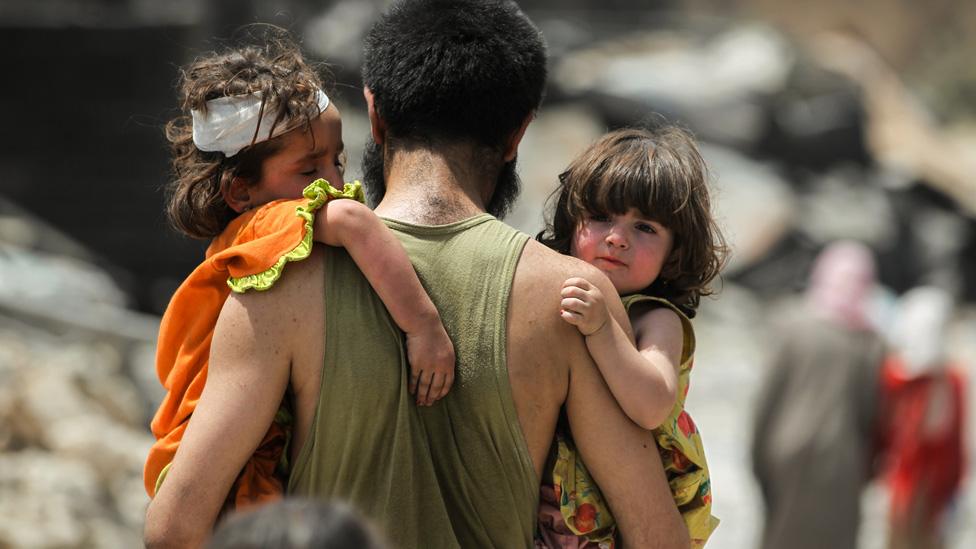Iraq's refugees: Life after IS
- Published
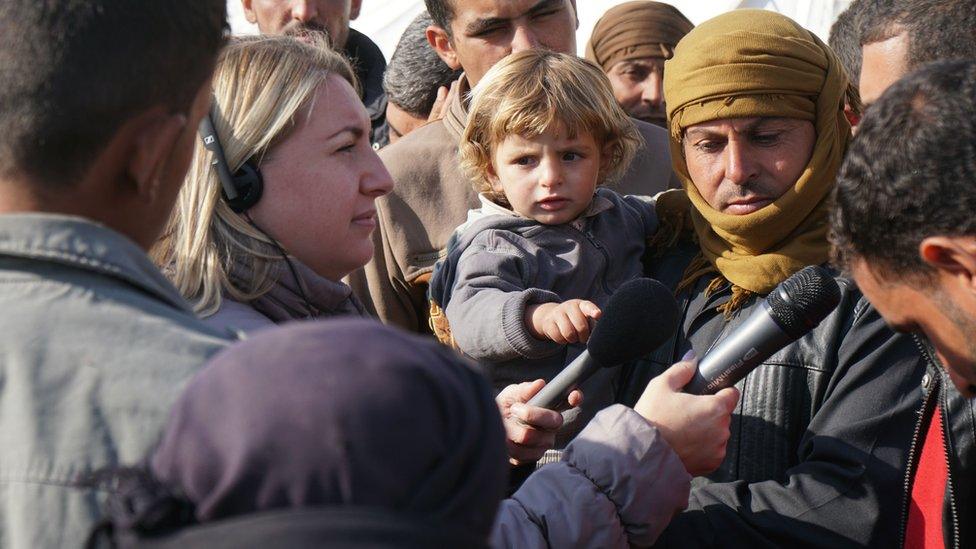
BBC Radio 5 live has been reporting from Iraq on the stories of women, children and men who have fled from the forces of the so-called Islamic State. Reporter Nick Garnett reflects on his time there.
As Anna Foster, presenter of 5 live Drive, and I sat opposite one another deep into the night editing video and audio, we had a moment of realisation: we had only been in Erbil for 48 hours. It seemed much longer.
In that time we had seen the high level of militarisation that is part and parcel of life in the country and organisational miracles like camps for displaced people that had been built out of the desert in less than a month and were now home to nearly 50,000 people.
We had come across children, living in the areas formerly controlled by IS, who were now starved and close to death.
But we had also seen children being children playing, singing and starting to enjoy being kids again, inquisitive and a bit cheeky, after enduring life under the control of a regime their parents told me had sucked the life out of them.
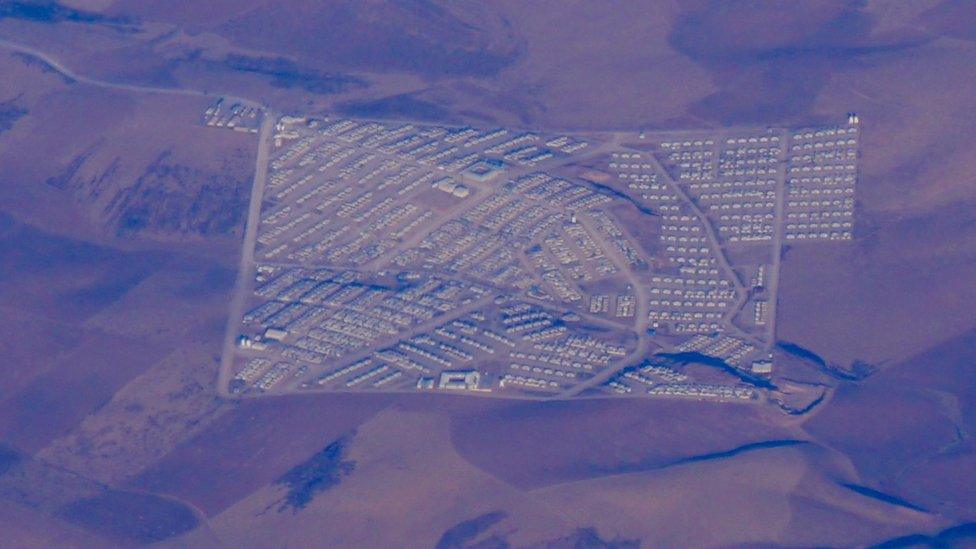
The IDP camp in Erbil from the air
This was my first view of Iraqi Kurdistan. Even from 43,000 feet up, the patchwork of tents is easy to make out. Regimented and hewn from the desert, these are IDP camps. Home to Internally Displaced People, a clinical phrase for a very human problem.
While we were visiting, the battle for control of Mosul was under way. We were invited to go to the camps that had been rapidly built to cope with the huge numbers of people fleeing the area.
They are refugees in their own country and do not want to go and live elsewhere. They want to stay as close as they can to their homes.
On my first day in the region we drove to a camp in Qayyarah Jeddah, to the east of Mosul.
Charities like Save the Children and Unicef invited Anna and me into the camps to meet the people living there. From a distance you could hear the singing and chanting in the classrooms - they were learning their ABC in English.
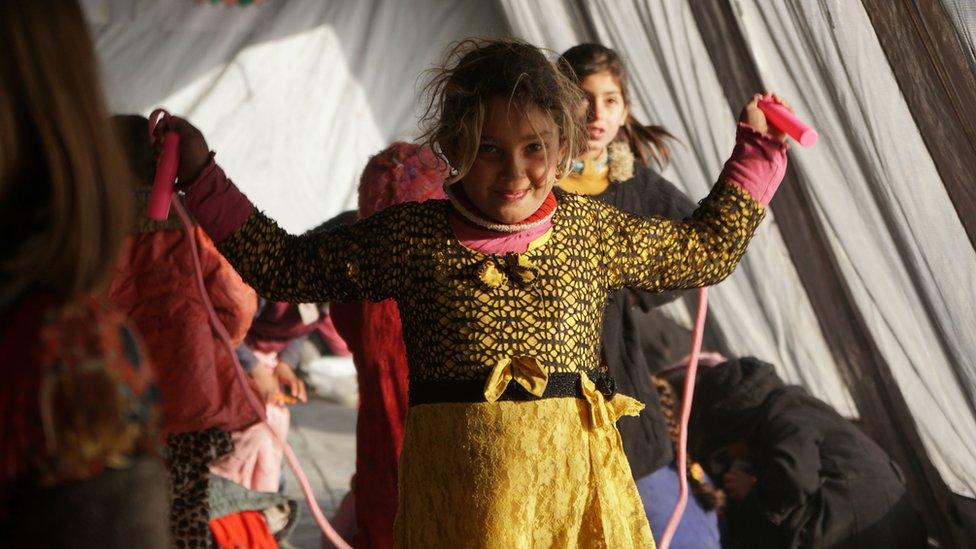
Children play in the camps
I took a picture of a group of girls playing skipping songs in a tent. The sun was low, light was streaming in, close to the ground, through the windows. Time and again I was told that under the watch of IS soldiers, women and girls had to cover themselves all day and night, wearing gloves and full niqab.
In the camp I did not meet any women wearing them, although some wore a veil if they thought they were being photographed.
As I wandered around the camp I realised I was like the Pied Piper of Hamelin, with a lot of people following me, all wanting their photograph taken. Lots of them made the peace sign, although I had to give them a brief lesson in "which way to hold your fingers".
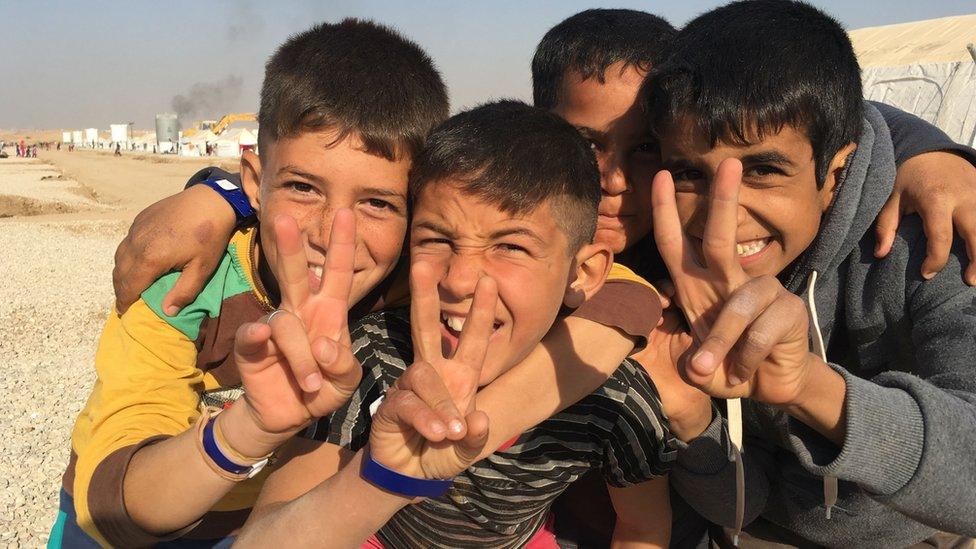
The children were keen to have their photo taken
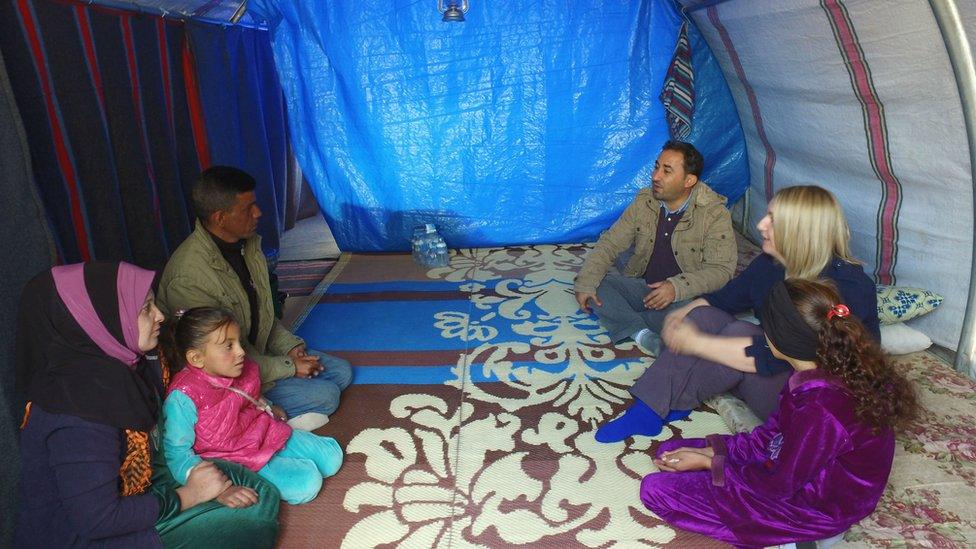
The Abu Duwar family. The father was previously a policeman
We visited the Abu Duwar family in their tent. The father had been a policeman and had to flee to save his life, while his wife was having to cope with children with too much energy living in a tiny space. On the back wall of their tent hung one of the few belongings they had saved - their daughter's mirror and backpack.
As we crossed the River Tigris, watched over and checked at regular intervals along the way by armed militia, police and army, we came across a village that, at first sight, was deserted.
As I filmed the blown-up, bombed and devastated houses, a man appeared and gestured for us to go into one. The windows were all smashed, in common with many other houses, but there was one specific difference - the explosion that caused the damage had been inside the house, not outside. It was the work of a suicide bomber.
The damage was intense but the family had to clean up and stay put. They knew that if they left, it might not be there when they got back.
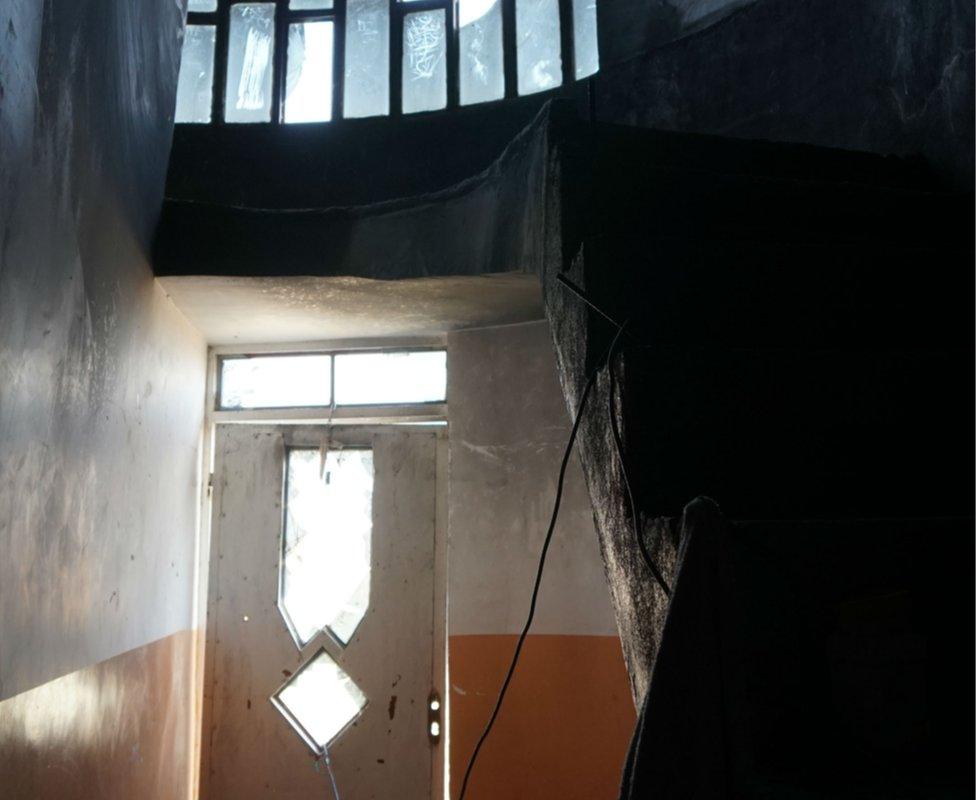
This house was severely damaged internally by an explosion detonated by a suicide bomber
Outside we found mortars, a wooden box that had contained C4 explosives, an unexploded road mine and dozens of bullet casings. The road was pock-marked where it had been booby-trapped.
As we walked back to the car, a boom went up, echoing around the hillside - a mine in the next field had exploded. I looked around, but nobody came running.
We passed the flag of Kurdistan on an embankment and in the background, black smoke filled the sky from an oil well set alight by the IS fighters as they fled. They use the smoke to protect them from drone strikes which cannot see through it.
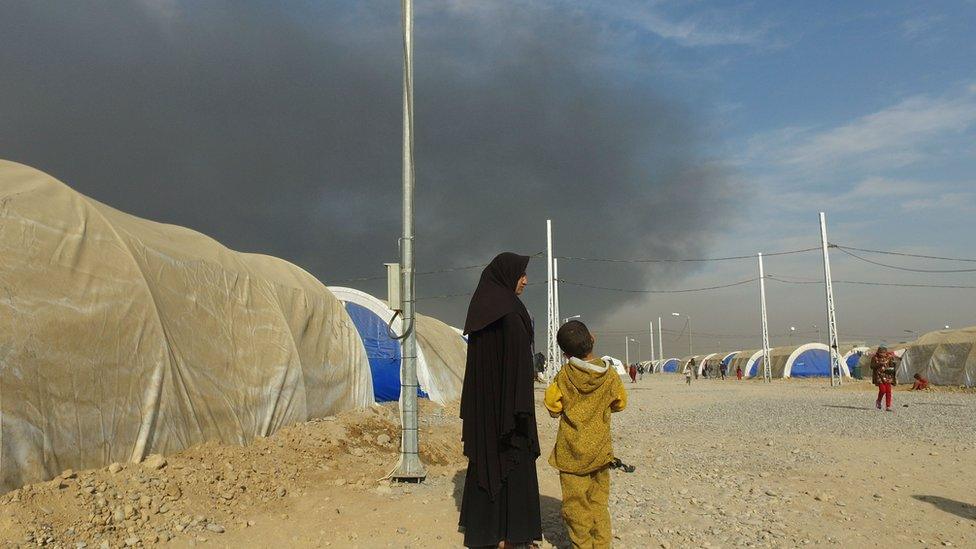
Smoke from burning oil wells rises above the Erbil camp
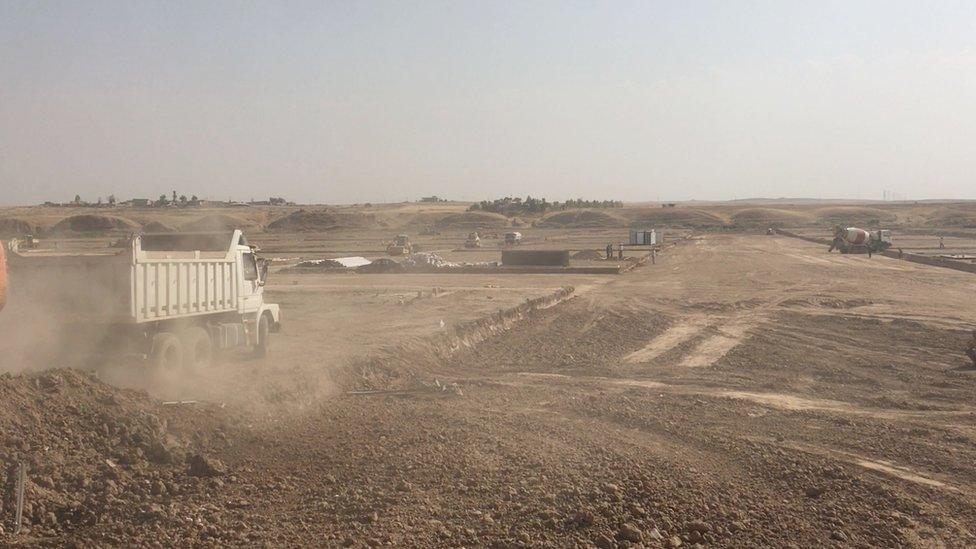
The Unicef camp north of Mosul in October 2016
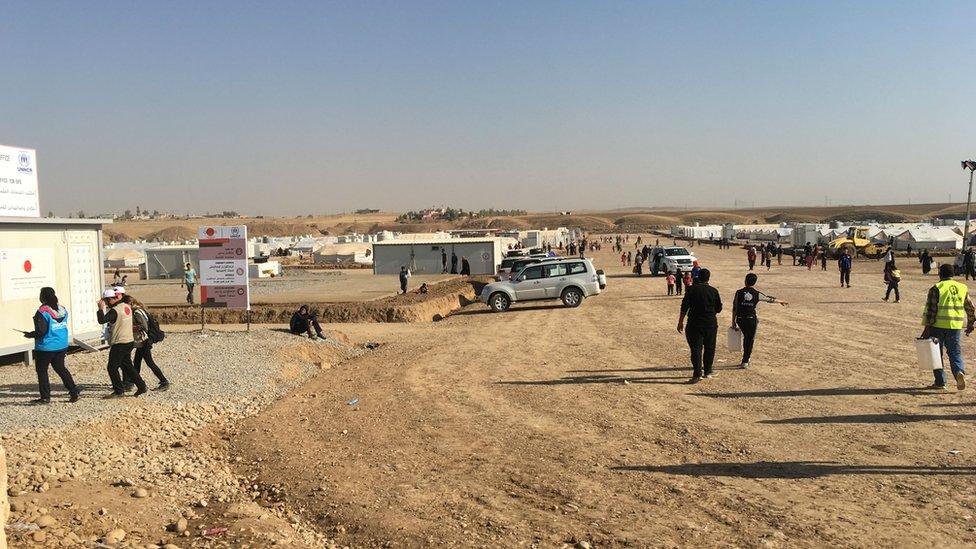
The same camp a month later
The following day we were the guests of Unicef at a camp to the north of Mosul. A month ago it had been a sandy desert. Now it was home to 50,000 people.
In one tent we saw two emaciated children who had been starving to death. Their mother watched over them and gestured for me to take their photograph, keen to know if it would lead to action.
After our visit, charities came to help take the children to hospital.
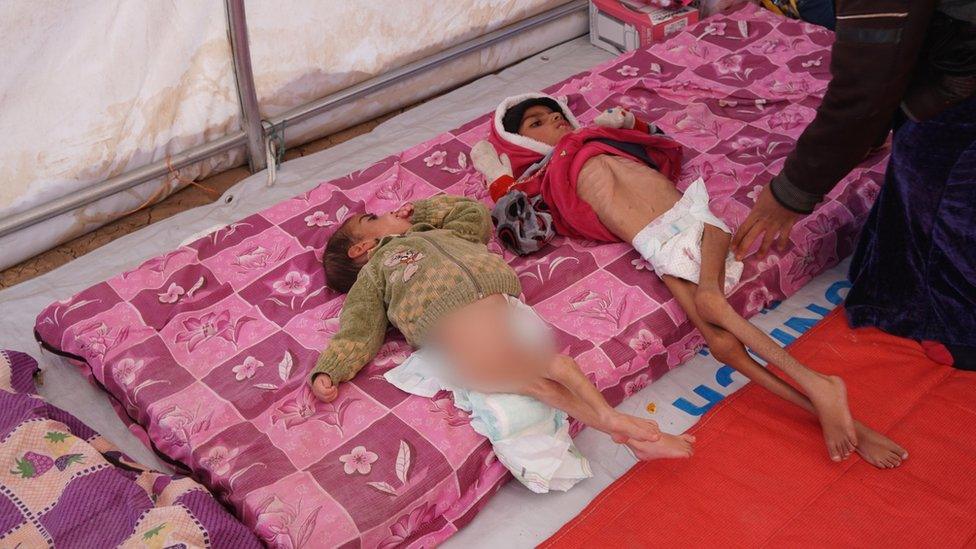
Emaciated children at the camp
And yet, a few blocks away, were happy smiling children, clamouring to be allowed in to study in the classrooms.
The gap between happy and sad, hopeful and hopeless is only a few tents.
The crowds of people around Anna as she broadcast live on the radio were brilliant - respectful to a certain extent but giggling as I introduced myself.
I had a word with Mohamed who was helping us with translations and could not work out why they were laughing until he told me that Nick, in Arabic, is fairly close to a very - and I mean very - rude word.
If I brought just a little relief to their day in the camp then I will take that one on the chin.
There are many more of BBC Radio 5 live's reports from Iraq on the 5 live website.
- Published28 March 2018
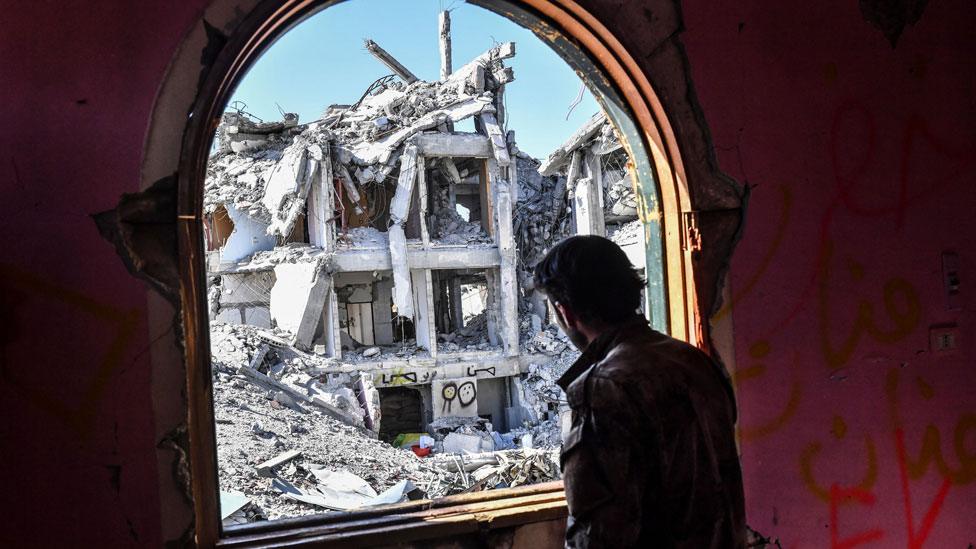
- Published29 November 2016
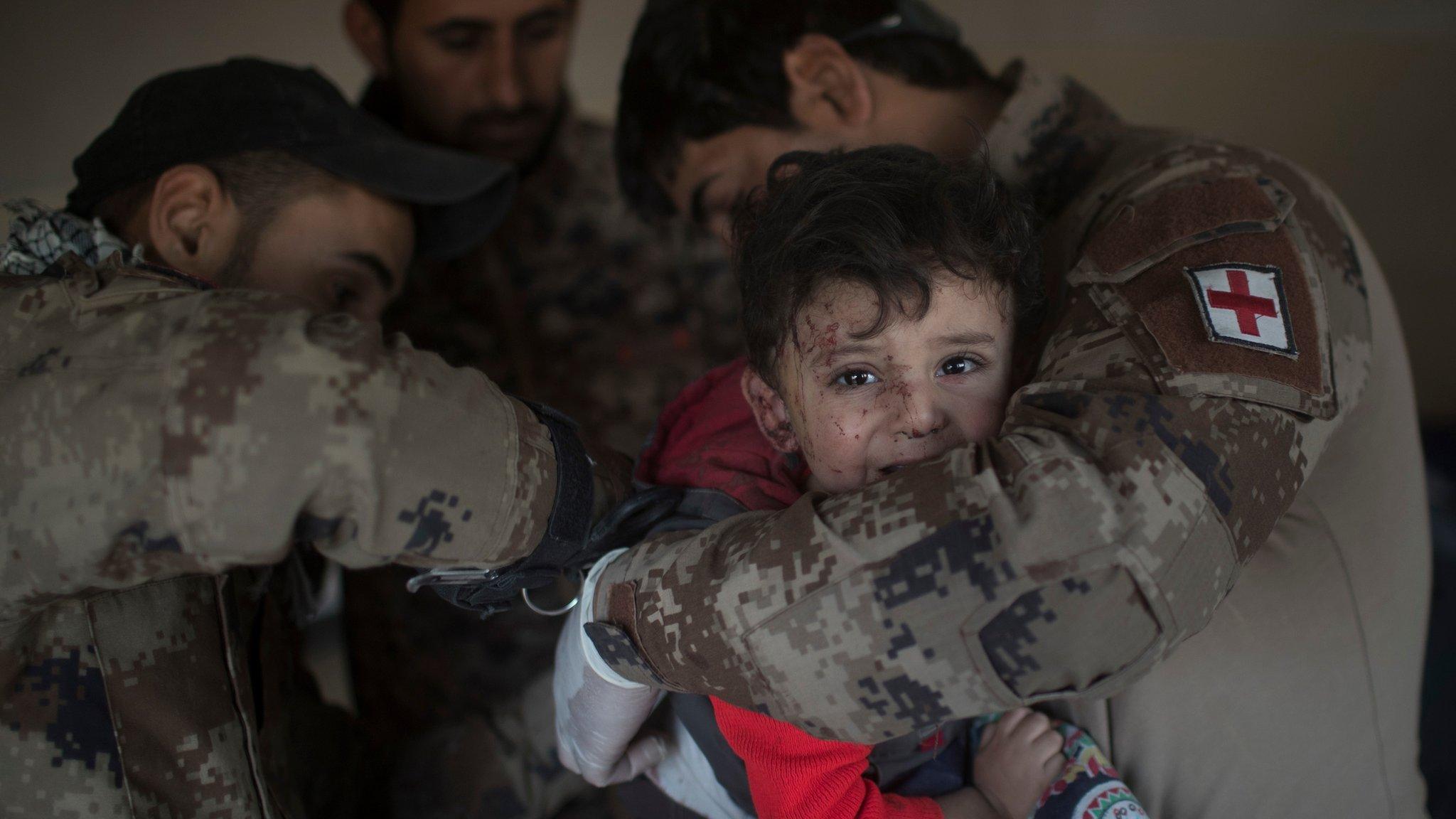
- Published10 July 2017
